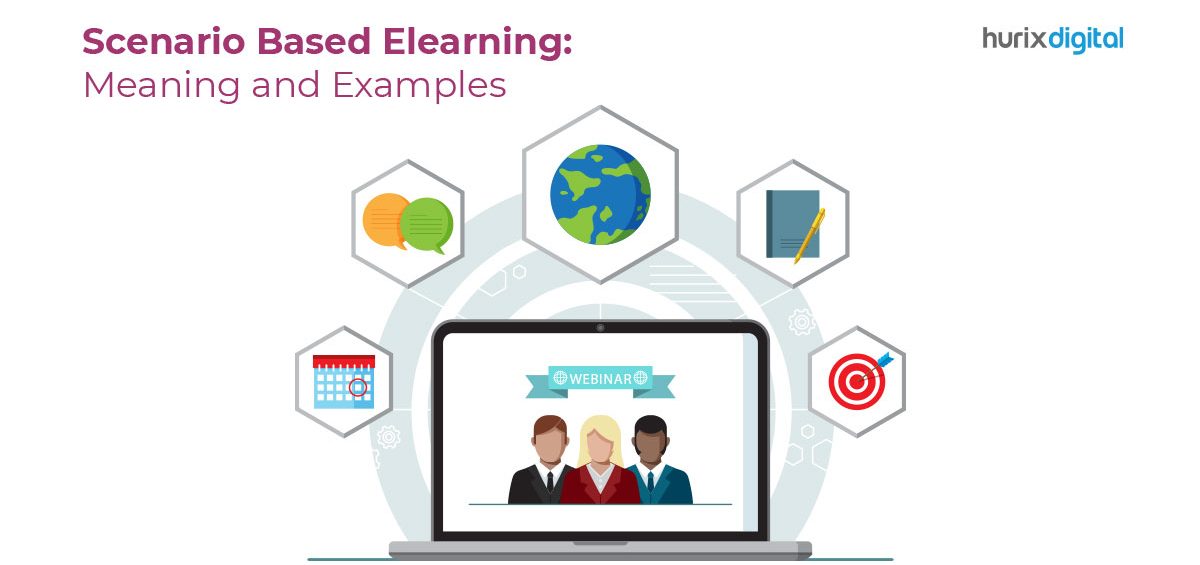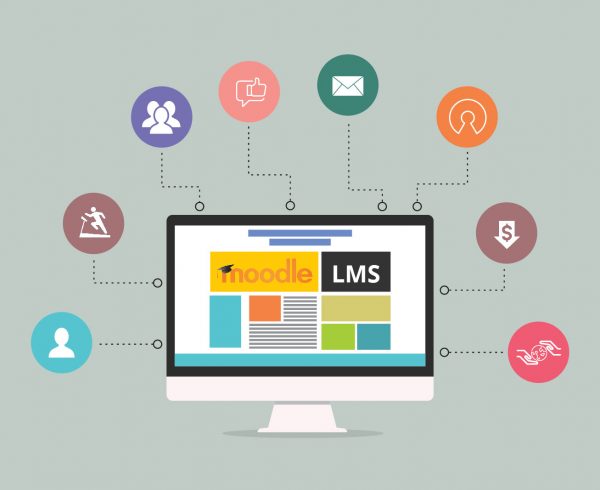Imagine you’re learning a new skill – for the sake of simplicity, let’s say it’s baking a cake. You could read a recipe book and memorize the steps, but it’s only once you actually try making the cake that you fully understand how the ingredients come together and what each step involves.
This is the essence of scenario-based eLearning – creating realistic situations that allow learners to apply their knowledge and skills in a practical context.
Immersing learners in scenarios that mimic real-life situations can enhance their understanding and retention of key concepts, making the learning experience more engaging and effective.
In this article, we’ll explore scenario-based eLearning, how it works, and why it’s such a powerful tool for online training. So let’s roll up our sleeves and get ready to dive into scenario-based eLearning!
What is Scenario-Based eLearning?
At its core, scenario-based eLearning involves creating realistic situations or simulations that learners can interact with. These scenarios mimic real-life situations, allowing learners to apply their knowledge and skills in a practical context.
Rather than simply presenting information or concepts theoretically, scenario-based eLearning encourages learners to engage actively with the material, making the learning experience more immersive and leading to better retention and knowledge.
For example, imagine a scenario-based eLearning course for customer service representatives. Rather than simply presenting information on handling demanding customers, the course might present learners with a simulated scenario where they have to interact with an angry customer.
By putting learners in the shoes of the customer service representative, the scenario creates a more engaging and memorable learning experience.
How Does Scenario-Based eLearning Work?
Scenario-based eLearning typically involves several key elements:
- The Scenario: This is the simulated situation that learners will interact with. The scenario should be realistic and relevant to the course’s learning objectives.
- The Challenge: Within the scenario, there should be a specific challenge or problem that learners must solve. This challenge should be designed to test the learners’ knowledge and skills and to help them apply what they’ve learned in a practical context.
- Feedback: As learners interact with the scenario, they should receive feedback on their actions. This feedback can be positive or negative and should help learners understand the consequences of their choices.
- Reflection: After completing the scenario, learners should be able to reflect on their experience. This can involve answering questions, discussing the plan with others, or reviewing feedback from the course.
Incorporating these elements into scenario-based eLearning can create a more engaging and practical learning experience that encourages learners to apply their knowledge and skills practically.
Why is Scenario-Based eLearning Effective?
There are several reasons why scenario-based eLearning is such a practical approach to online training:
- Engages Learners: By immersing learners in realistic scenarios, scenario-based eLearning creates a more engaging learning experience. Learners are likelier to stay focused and retain the information they’ve learned.
- Encourages Application: Scenario-based eLearning encourages learners to apply their knowledge and skills in a practical setting. This can help them see how the material applies to real-world situations, making it more relevant and valuable.
- Provides Feedback: With scenario-based eLearning, learners receive immediate feedback on their actions. This helps them understand the consequences of their choices and can encourage them to try different approaches to the problem.
- Builds Confidence: By allowing learners to practice their skills in a safe and supportive environment, scenario-based eLearning can help build confidence and competence.
Examples of Scenario-Based eLearning
Let’s take a look at some examples of scenario-based eLearning in action:
- Sales Training: A scenario-based eLearning course for sales professionals might present learners with a simulated sales call. The scenario might include challenges such as objections from the customer or random questions. By practicing these scenarios in a safe environment, learners can develop their sales skills and build confidence.
- Compliance Training: Compliance training is often dull and dry, but scenario-based eLearning can make it more engaging and effective. For example, a scenario-based course on data privacy might present learners with a simulated data breach. Learners must navigate the scenario, making decisions on how to prevent any further breaches in compliance in the future.
- Health and Safety Training: Scenario-based eLearning can help train employees on health and safety procedures. For example, a scenario-based course for warehouse workers might present learners with a simulated emergency, such as a fire or a chemical spill. Learners must navigate the scenario and decide how to respond to the crisis while staying safe.
- Leadership Training: Scenario-based eLearning can also train leaders and managers. For example, a scenario-based course on conflict resolution might present learners with a simulated workplace conflict. Learners must navigate the scenario and decide how to resolve the dispute while maintaining a productive and positive work environment.
Tips for Designing Effective Scenario-Based eLearning
If you’re interested in incorporating scenario-based eLearning into your online training program, here are a few tips to keep in mind:
- Keep it Realistic: The scenario should be realistic and relevant to the course’s learning objectives. Learners should be able to see how the scenario applies to real-world situations.
- Make it Challenging: The scenario should include a specific challenge or problem that learners must solve. This challenge should be designed to test the learners’ knowledge and skills and to help them apply what they’ve learned in a practical context.
- Provide Feedback: Learners should receive feedback on their actions within the scenario. This feedback should be immediate and specific, helping learners understand the consequences of their choices.
- Incorporate Reflection: After completing the scenario, learners should have an opportunity to reflect on their experience. This can involve answering questions, discussing the scenario with others, or reviewing feedback from the course.
- Tailor to Learner Needs: Scenario-based eLearning should be tailored to the needs of your learners. Consider their job roles, experience level, and learning preferences when designing the scenarios.
Summing it up
Scenario-based eLearning is a highly effective approach to online training that can help learners apply their knowledge and skills in a practical context.
Creating realistic situations or simulations that learners can interact with can enhance learner engagement and retention, making training more effective and enjoyable.
With the right design and implementation, scenario-based eLearning can transform how you deliver online training, helping learners achieve better outcomes and businesses achieve their training goals.
Hurix Digital offers innovative e-learning training solutions that can help your organization navigate the challenges of workforce transformation. Our state-of-the-art platform is designed to provide your employees with engaging and interactive learning experiences tailored to their learning needs and individual learning styles.
Whether you need to upskill your workforce, improve employee engagement, or meet compliance requirements, our e-learning solutions can help you achieve your goals.
With Hurix Digital, you can ensure that your workforce is equipped with the knowledge and skills they need to thrive in today’s rapidly evolving business landscape. Get in touch with us today.











